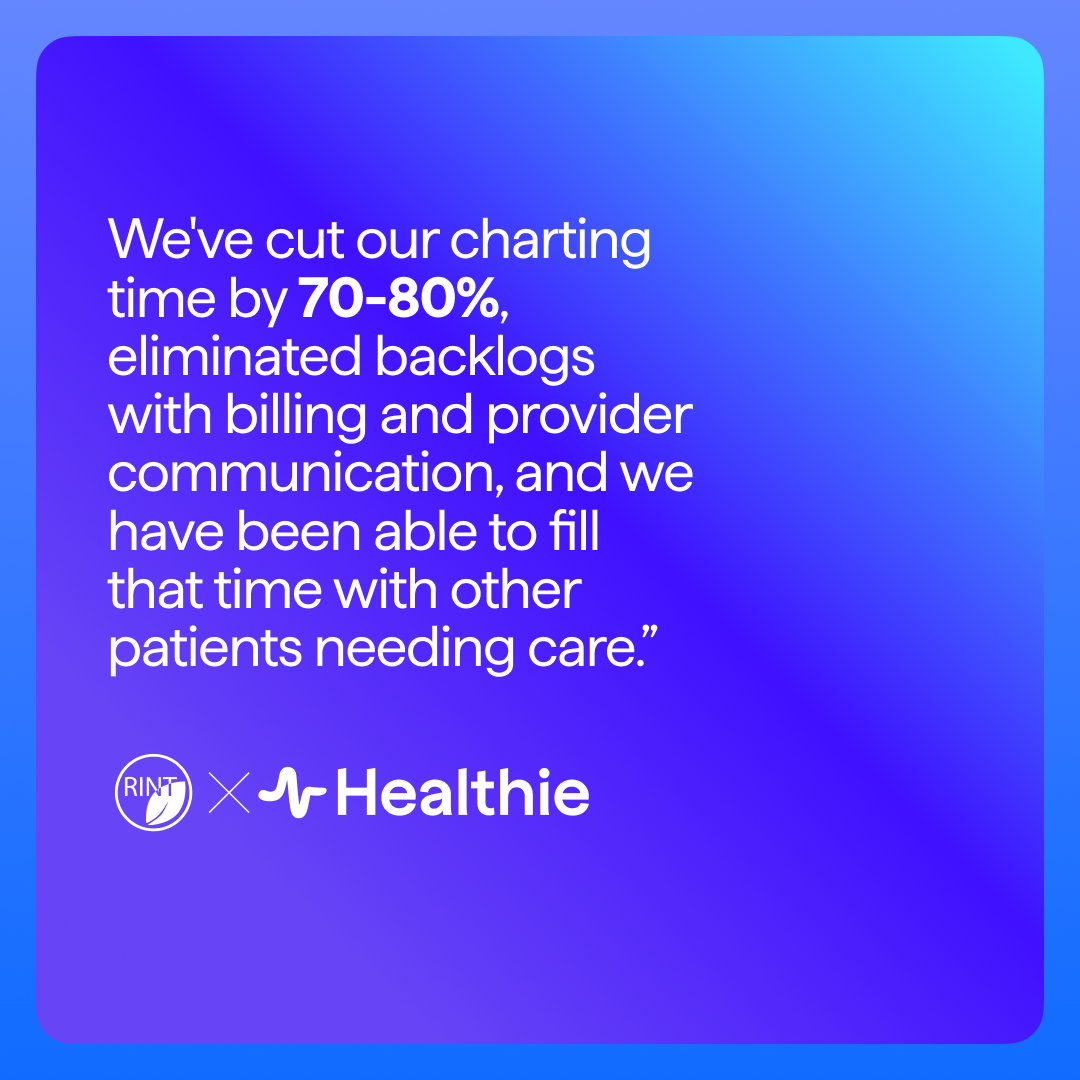

10 essential tools for managing a solo or group therapy practice
Discover the 10 essential tools for managing a private practice, and the impact they will have on your solo or group practice.
Managing a solo or group therapy practice demands a blend of clinical expertise and business savvy. Even the most seasoned practice owners can become overwhelmed without the efficiency and convenience offered by modern technology. Leveraging the right tools can streamline operations, enhance patient care, and boost overall practice efficiency. However, the abundance of available tools and recommendations can be daunting. To help you build a solid foundation for your practice, here are ten essential tools every private practitioner should consider.
Must-have tools for managing a private practice
While you will probably find that now there is a tool for nearly everything, it is helpful to first create a solid foundation for the core operations of your business. Having these tools in place will help to avoid the stack-up of administrative tasks and patient frustration.
Electronic Health Records (EHR) and EMR Systems
Electronic Health Records (EHR) and Electronic Medical Records (EMR) systems are foundational for any therapy practice. EHR software stores comprehensive patient information, including medical histories, treatment plans, and progress notes. EMR systems are similar, but don’t offer as much flexibility and interoperability (read more about the differences here). For providers, finding the best EHR for mental health private practices is crucial as it should cater to specific needs such as psychological assessments and therapy notes. EHR technology also ensures that patient information is easily accessible, securely stored, and compliant with HIPAA regulations.
Scheduling Platform
Patient scheduling software is vital for managing appointments efficiently. It minimizes scheduling conflicts and ensures that practitioners make the most of their available time. An advanced scheduling platform can send automated reminders to patients, reducing no-show rates. It also integrates seamlessly with EHR software, ensuring that appointment details are synced across systems.
Medical Billing Software
Medical billing software simplifies the complex process of billing and insurance claims. It automates invoicing, tracks payments, and manages insurance reimbursements. This reduces the administrative burden on therapists and allows them to focus more on patient care. The best medical billing software will also integrate with your practice management software, ensuring that all financial aspects of the practice are streamlined and transparent.
{{pp-newsletter-signup}}
Practice Management Software
A comprehensive practice management software is essential for handling the day-to-day operations of a therapy practice. It encompasses various functions, including scheduling, billing, reporting, and patient management. The best practice management software will offer EHR integration, ensuring that patient data flows seamlessly between different systems. This is particularly important for a private practice EHR, as it enhances efficiency and reduces administrative errors.
HIPAA-Compliant Email
Communication with patients needs to be secure and compliant, stringently following HIPAA regulations. Using a HIPAA-compliant email service ensures that sensitive patient health information (PHI) is protected during electronic communication. This is a non-negotiable tool for any therapy practice to follow regulations and maintain trust and confidentiality.
Password Keeper
Long-gone are the days of passwords on post-it notes and using your dog’s name to login. A password keeper is an essential tool for managing the multitude of passwords required for various software and online services. It ensures that passwords are stored securely and reduces the risk of security breaches. Given the sensitive nature of PHI, maintaining robust cybersecurity measures is critical and can prevent major security events later on.
Patient Messaging Portal
A patient messaging portal allows secure communication between therapists and patients, eliminating the desire for non-secure communications, such as texting. This tool enhances patient engagement and ensures that all communications are securely stored within the practice management system. A patient engagement platform that includes a messaging portal is a valuable asset for maintaining continuous and secure communication with patients, directly linking these conversations to the patient profile and chart.
Cloud Storage
Cloud storage solutions provide secure and scalable storage for patient records, forms, and other practice-related documents. They ensure that data is accessible from anywhere and protected against physical damage or loss (this is critical in the case of an insurance audit). A HIPAA-compliant cloud storage service is essential for safeguarding sensitive PHI.
Database of Forms
A database of forms, including intake forms, consent forms, and treatment plans, can remove a lot of the upfront work of opening a practice and streamlines the administrative process. Digital forms should be easily customized, filled out by patients online, and automatically integrated into the EHR system. This reduces paperwork and improves the overall efficiency of the practice.
Video Chat
Telehealth services have become increasingly important and in demand. A HIPAA-compliant telehealth platform, such as Zoom for Healthcare, enables therapists to conduct virtual sessions securely, whether they are for individual, couples or group therapy sessions. Telehealth systems expand the reach of therapy practices, allowing them to provide care to patients who may not be able to attend in-person sessions.
Vetting tools: security, applicability & price
When selecting tools for a therapy practice, it is crucial to vet them based on security, applicability, and price. Security is paramount, particularly with the need to comply with HIPAA regulations. Ensure that any software or service you choose offers robust security features and is HIPAA-compliant.
Applicability refers to how well the tool meets the specific needs of your practice. For instance, the best EHR for therapists will include features tailored to mental health practices, such as therapy notes, split screen charting, and psychological assessments and forms. Similarly, practice management software should offer EHR integration and be adaptable to the workflows of a therapy practice.
Price is also a critical factor, especially for solo practitioners or small group practices. While it's essential to invest in quality tools, it’s also important to ensure that they offer good value for money and fit within your budget. Many software solutions offer tiered pricing or subscription models that can accommodate the financial constraints of smaller practices.
Short-term versus long-term solutions
When considering the adoption of new tools, it's important to distinguish between short-term and long-term solutions. Short-term solutions might include tools that address immediate needs or temporary fixes. For example, a basic video chat service might suffice initially, but as the practice grows, a more robust telehealth system with comprehensive features will likely become necessary.
Long-term solutions, on the other hand, should be scalable and adaptable to the evolving needs of the practice. Investing in an all-in-one practice management software that includes EHR, billing, and scheduling functions might have a higher upfront cost but will offer greater efficiency and integration over time. Similarly, selecting a patient engagement platform with a broad range of features will ensure that the practice can continue to provide high-quality care as it grows
Healthie: the all-in-one solution for therapy practices
For those looking for a comprehensive solution, Healthie stands out as an all-in-one platform that encompasses several essential tools for managing a therapy practice. Healthie offers EHR, billing, patient engagement, and practice management software in one package. This holistic solution ensures that all aspects of the practice are seamlessly connected, enhancing efficiency and reducing administrative burdens.
Healthie’s EHR software is tailored for mental health practices, making it the best EHR for mental health private practice. It includes features such as customizable therapy notes, a suite of 40 mental health forms, and an online scheduling system. The platform's medical billing software automates invoicing and insurance claims, while its practice management software streamlines scheduling, reporting, and patient management.
Moreover, Healthie offers a patient engagement platform that includes secure messaging, telehealth services (Zoom), and a patient portal. This ensures that communication with patients is always secure and HIPAA-compliant. Healthie also supports EHR integration with other systems, enhancing its flexibility and adaptability.
One of the standout features of Healthie is its marketplace of integrations. This allows practices to connect Healthie with other tools and services, ensuring that the platform can grow and evolve alongside the practice. Healthie offers a level of customization that makes it an ideal long-term solution for therapy practices.
Managing a solo or group therapy practice requires a range of tools that enhance efficiency, improve patient care, and ensure compliance with regulatory standards. By carefully selecting and integrating these tools, therapists can focus more on providing high-quality care to their patients. Healthie offers an all-in-one solution that simplifies this process, making it a valuable asset for any therapy practice.
{{pp-newsletter-signup}}





